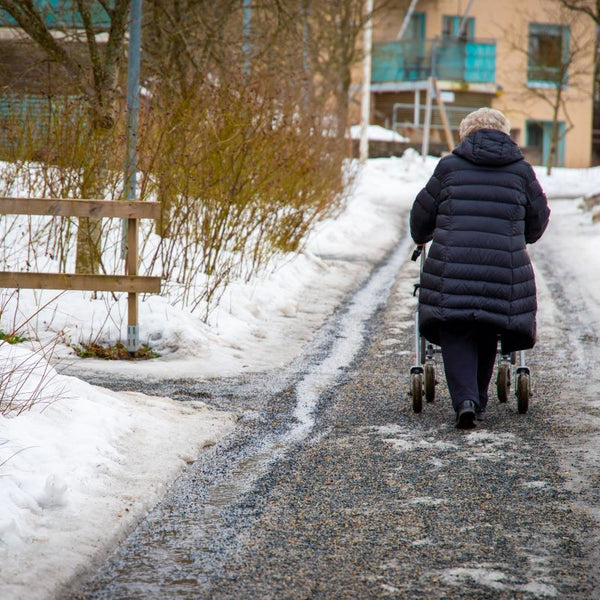As part of our #HaveTheTalk campaign, we asked families to share their experiences of providing care and how they have the often difficult conversations about ageing.
In this video, Tracey talks with daughter Emma about the difficulties of providing elderly care for her father as he gets older. She shares the pressures of juggling work commitments with family concerns and how her father is reluctant to accept help.
Many people like Tracey find it difficult to raise the topic of care with their parents. The #HaveTheTalk campaign addresses these issues and provides the guidance and support needed to have this difficult conversation.
How to discuss care options with your elderly parents
We teamed up with psychologist Dr Soha Daru to share insights and tips to help families discuss the subject of eldercare.
Video transcript
Emma: Yeah, I think if I was to approach a difficult conversation with you, no matter what the subject, I'd just give you a call and say "Do you want to come around for a brew?" or "I need to talk to you". I know you would come around quickly and just get straight into it.
Tracey: That's quite interesting because what you do to me, and you know what I'm going to say, it's always a red flag. I'll get a text and you will say to me "Come round for a brew" and I think "Something's wrong". Okay, so I'm in the car and I'm straight there. That's our way of doing it, I think. You won't actually say "Mum, I need help at the moment".
I'll ask you a lot of things because I think "She's got two kids, she's working". If I was on my knees or something quite tragic had happened, I would say "Look, I'm going to need some time here". But other than that, no, I don't think you would ask.
But I've always been quite independent as well. I wouldn't say it's losing that independence. It's just I always think "Well, I can handle it myself". If I couldn't handle it, fair enough, I'd come to you. But nine times out of ten, I can handle stuff.
Emma: It does worry me a little bit that you do that because I think what might you be internalising? However, I know that you do have a really good support system from friends and from your partner and things like that.
I would like it if you were just a bit more open and I could do with your help as well. Sometimes just be open about it.
I don't feel uncomfortable talking about care. But I think you would feel uncomfortable. And I similarly, going back to me being a little bit selfish, don't really want to acknowledge that its something I am going to have to possibly take on the burden of, and I'm an only child, that does scare me a little bit.
Tracey: I don't like thinking about the fact that I might have to factor that into my life one day and it's a massive thing to think about. Caring for somebody else, what to do about their care or if you weren't able to make that decision yourself and I had to make that decision for you and the financial implications...it's a huge thing to talk about. It's massive pressure.
So I think we have thus far avoided it because it's just such a lot to factor in.
I think to a degree "it's never going to happen". But it's inevitable. It will happen at some point that I will age and, you know, I'll end up in a home or I don't know something, I'll have some major illness or something will happen.
It is something that we do need to talk about at some point but I'm the same as you. I don't particularly want to talk about it with you because I don't want to put that responsibility on you. Because you are an only child, that's a lot of responsibility for you.
It's happening with me and my Dad at the moment because my brother lives in Bristol. A lot of it's on me and I feel that pressure and I think "I don't want Emma to feel this". I think that's like part of it as well, that you don't want to talk about it because it's kind of acknowledging the next stage of life, which is eventually that your parent isn't going to be there anymore. And that's not something that you again, want to acknowledge for me as well.
I don't want to think about a time where I have to deal with that situation. I know you're not going to be here forever, but you don't want to think about the reality of it and taking the steps to talk about care.






